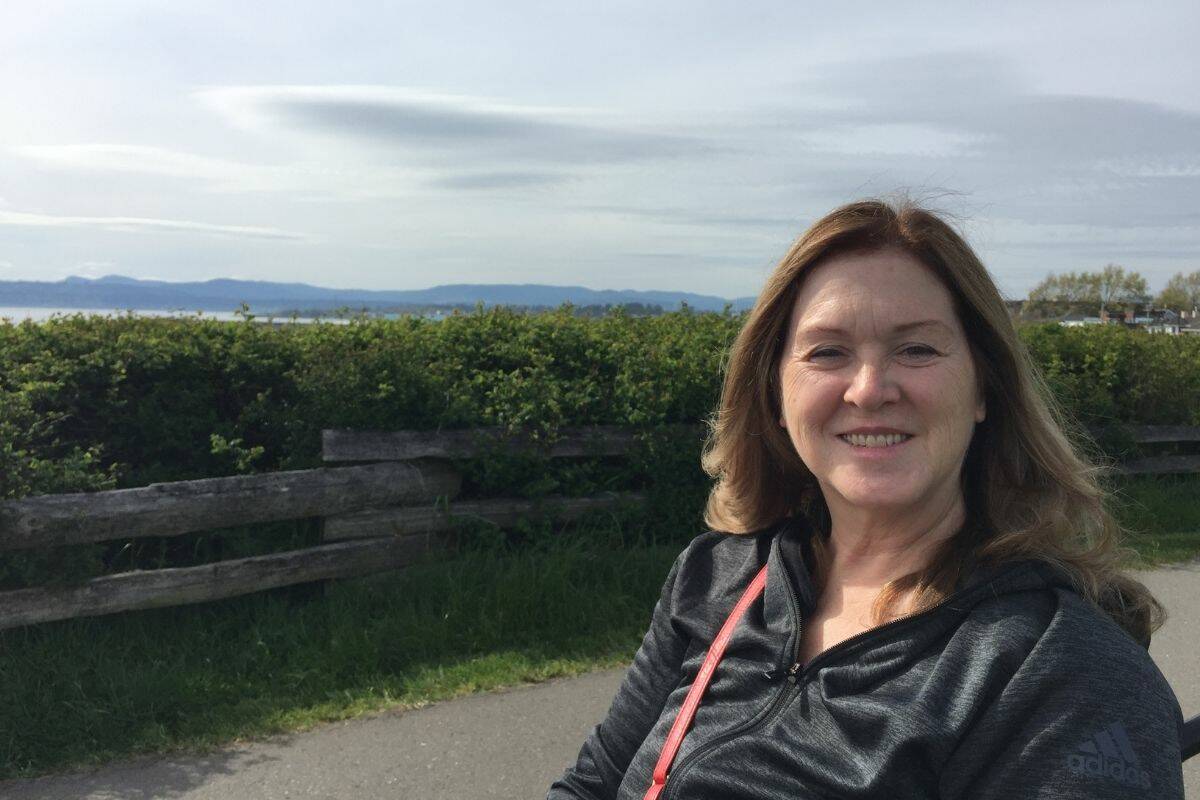A Greater Victoria woman deemed medically vulnerable by the B.C. Centre for Disease Control says Island Health’s process for booking COVID-19 tests has left her feeling helpless.
Langford resident Shelley Robinson, 56, has adult cystic fibrosis, a disorder known to cause severe damage to the lungs and other organs. As a result, she’s categorized as high-risk under provincial health guidelines.
The week of Dec. 27, Robinson and her husband started to experience symptoms consistent with COVID and decided to see if they could get tested for the virus.
Island Health, along with other regional health authorities in B.C., moved away from PCR testing for all symptomatic residents as of Dec. 31. Now, the test is only available to vulnerable residents or those working in health-care settings.
Considering her illness, Robinson qualified to receive a PCR test under the updated guidelines. Her husband, who often works in in-person settings where there are strict protocols about self-reporting COVID exposures, also hoped to take a test to be cleared for work.
READ MORE: New COVID test booking system causing confusion for Vancouver Island residents
Robinson first called to book a test through Island Health’s hotline and automated callback system shortly after 9:30 a.m. on Friday, Dec. 31. No booking callback came by the 48-hour mark, so she called the hotline again around midday on Jan. 2.
Having still not received a callback as of Jan. 5 and feeling quite ill as of Wednesday morning, Robinson worries about what might happen next.
Island Health confirmed individuals with underlying illnesses are still candidates for PCR testing, but did not comment on callback services for vulnerable people, only to say residents may experience delays.
“Our testing call centre is experiencing overwhelming demand and we ask for people’s patience,” the response said.
READ MORE: B.C. reduces isolation time to 5 days for mild COVID-19 symptoms
Robinson has excellent support from doctors at the St. Paul’s Hospital cystic fibrosis clinic in Vancouver, but even with virtual appointments to assess her symptoms, she said an official COVID diagnosis would help develop a recovery plan.
“It’s important for me to know … because then I’m able to report that with my doctors, and I’ll know if I have antibodies,” she said. “All of those details have a bearing on my medical file.”
Robinson is no stranger to frightening viruses – she contracted H1N1 in 2016 and ended up staying in the ICU for five days because of her condition. Now, she is fearful of having to be admitted again.
”If it goes into my lungs, I’m hooped,” she said. “All of this is quite worrisome for me, even though I am holding my own.”
Unless her condition worsens enough to necessitate a hospital visit, Robinson said, she’s not sure how to access local medical support for her high-risk symptoms, especially without an official COVID diagnosis.
“I’m scared. I have absolutely no medical support system,” she said. “I have a husband (to help me), but what if I was single? What if I was elderly?”
Too frustrated with the process to try communicating with Island Health again, Robinson and her husband are self-isolating and monitoring their symptoms from home. In the meantime, she hopes sharing her story will show how high-risk residents can slip through the cracks of COVID care.
“There are so many people out there that are vulnerable,” she said.
READ MORE: How to use rapid testing to keep you and yours safe
Do you have a story tip? Email: tegwyn.hughes@blackpress.ca.
Follow us on Twitter and Instagram, and like us on Facebook.

